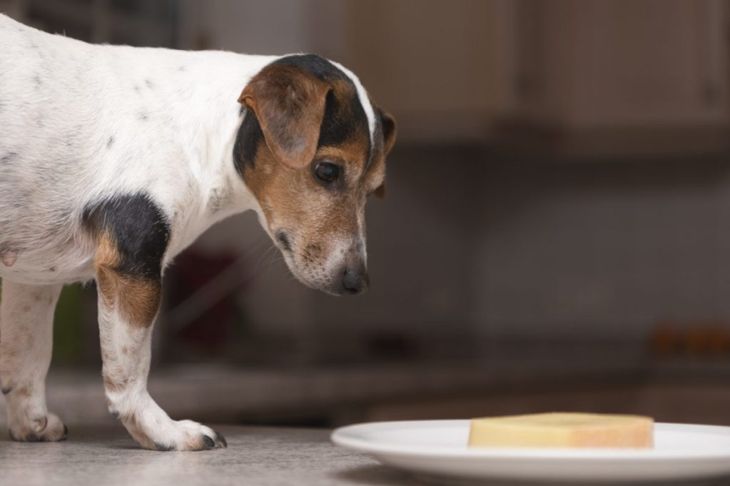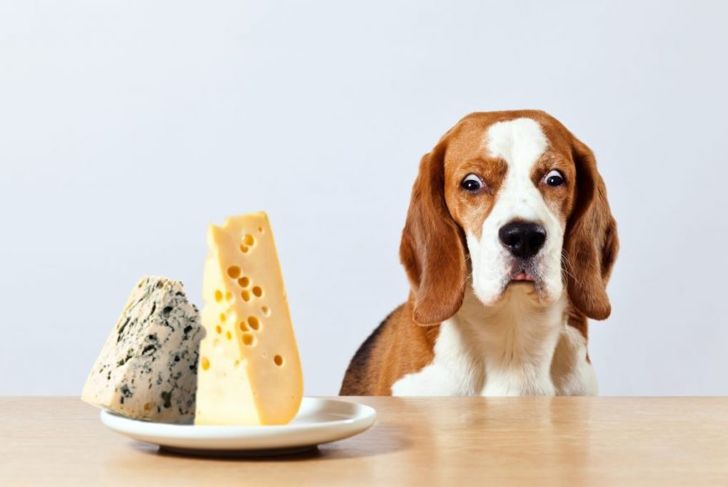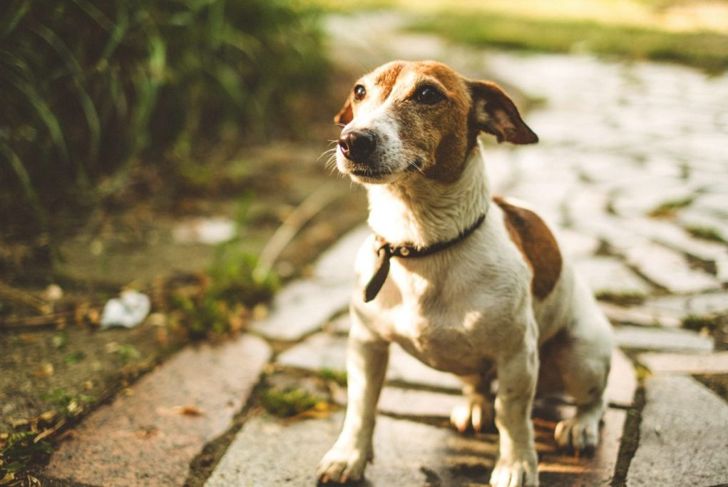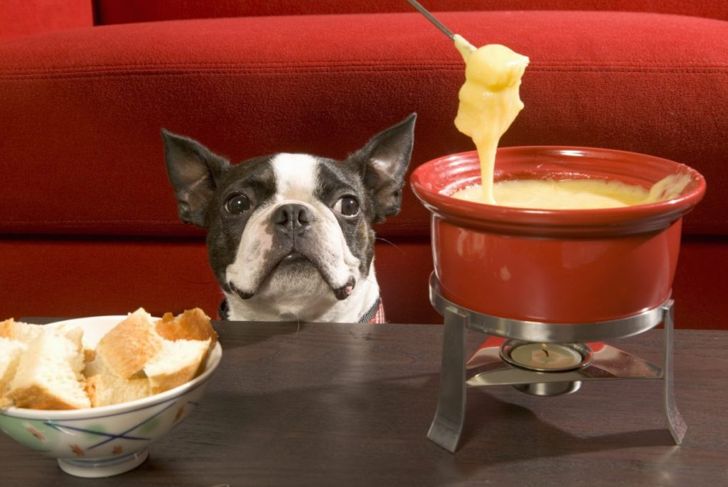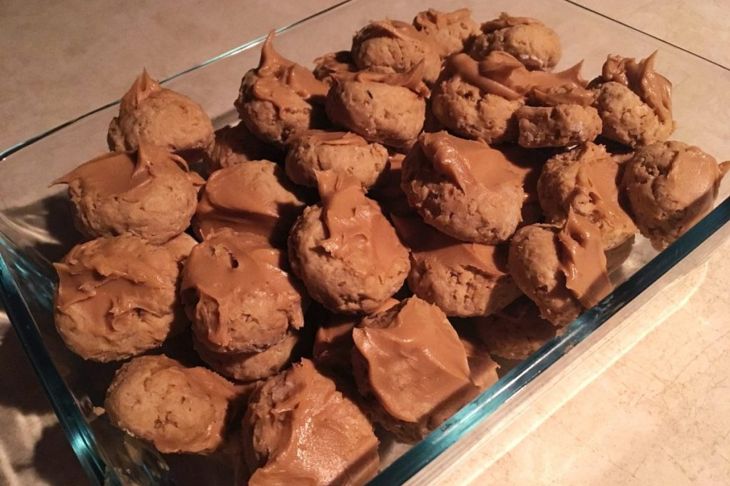Let’s face it. There’s nothing harder than saying “no” to your best friend; you know, the one at your elbow with the wagging tail and big puppy eyes, the one that’s hungrily inspecting the macaroni and cheese casserole or ham and Swiss on rye sandwich with cheese curls on the side, silently—but oh, so effectively–begging for a bite from your plate. While you bravely strive to retain control over table snacking for your pet, those eyes get you every time. We have some cheesy tidbits that may help you decide to give in or resist.
Benefits of Cheese Snacks
Overall, cheese is a solid snack choice. It’s a terrific fuel source and contains the mineral calcium that helps build and maintain strong bones and muscles as well as vitamin A, an essential element for a strong immune system and spot-on eyesight. B-complex vitamins contribute to a dog’s metabolism while providing essential fatty acids not produced in the body.
Drawbacks of Cheese as a Snack
The key to feeding your pup high-calorie, high-fat cheese is moderation because cheese consumption may contribute to weight gain in some dogs. Another problematic occurrence is the development of inflammation in the pancreas, a condition with potentially fatal results in dogs of all breeds, but particularly in cocker spaniels, miniature schnauzers, and miniature poodles.
Good Cheese Choices for Your Pup
Cottage cheese, with 50 calories per quarter-cup serving and a high-calcium content, is a top choice for dogs according to animal nutritionists. Other good choices to offer your pet are cream cheese, mozzarella, and ricotta, all low-fat and low-sodium options. Swiss and cheddar, in chunks or slices, are also good options.
Cheeses to Avoid Giving Your Dog
Certain types of cheese, such as blue cheese varieties that include Roquefort, Stilton, and Gorgonzola, contain penicillium mold cultures that may upset a dog’s delicate system. Also avoid any cheese that’s enhanced by the addition of onions, garlic, raisins, grapes, macadamia nuts, or avocado as these ingredients are deadly for dogs. For example, plain cream cheese is a good choice but read the labels carefully to ensure nothing harmful to your dog is added.
Dog-sized Portion Guidelines
Veterinarians recommend no more than 10 percent of your dog’s daily calories be consumed in the form of treats or anything other than his regular balanced dog food. One slice of cheese or a small 1-inch cube contains approximately 90 calories, a big load of extras for a small dog, not so much for larger ones. Senior dogs, just like people, have lower energy levels and may also suffer from chronic diseases that require a specialized diet so you may want to check with your veterinarian.
Do Dogs Suffer From Lactose Intolerance?
Some dogs are lactose intolerant, so it’s important to introduce cheese into your pet’s diet slowly and in small amounts, even though, compared to whole milk, cheese contains little lactose. If your dog exhibits signs of intolerance such as diarrhea, upset stomach, or excessive gas following cheese ingestion, it’s best to avoid giving cheese to your pet at all.
Training and Good Behavior Reward
Cheese is often used when training dogs because it’s easy to stow a few cubes or cheese sticks in your pocket for handy access or transport for outdoor training. Cheese is also an excellent way to administer needed medicine to an otherwise uncooperative animal, and enclosing the pill in a small amount of cheese ensures the medication is safely ingested.
Medications and Cheese
The consumption of dairy products may inhibit the effects of drugs such as antibiotics used to treat bacterial infections such as tick-borne Lyme disease, Rocky Mountain Spotted Fever, and ehrlichiosis. Aged cheese is high in tyramine, so if your pet is on an MAOI inhibitor, eating this type of cheese may result in a bloodstream imbalance. If you are not sure what types of medication your pet takes, check with your vet before adding cheese to the diet.
Cheesy Tidbits
Wall murals depicting cheese making in Egypt date back 4,000 years, and you can bet Egyptian dogs enjoyed the results as well as the cheese artisans. The most popular recipe in the United States is mac and cheese, and Wisconsin, known for its cheesemaking prowess, boasts a state law that requires restaurants to offer a cheese dish with every meal. England’s Queen Victoria received a wedding gift that rivals all others: a 1,000-pound wheel of cheddar cheese. There’s even a name for cheese fanciers: turophiles.
Tasty Cheese-based Dog Treats
Treat your pup to a chilly treat with some easy-to-make cheese popsicles. Combine any flavor, low-sodium broth with cheese cubes, pour into ice molds, and freeze. That’s it. For variety, feel free to add a few vegetables, such as carrots, for added texture and nutrition. Bake up a batch of cheese dog biscuits with this simple recipe. Mix together:
- 2 cups of oatmeal
- One egg yolk
- Six teaspoons of flaxseed
- Six teaspoons of milk
- 2/3 cups of cottage cheese.
Form the mixture into small balls and bake at 350 degrees F for about 30 minutes, until the edges are golden brown. Cool. Serve.

 Home
Home Health
Health Diet & Nutrition
Diet & Nutrition Living Well
Living Well More
More